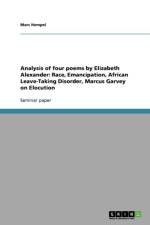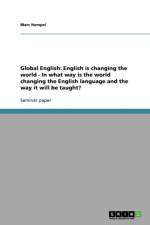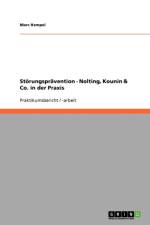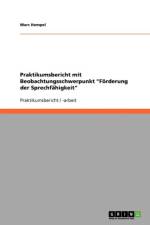- Race, Emancipation, African Leave-Taking Disorder, Marcus Garvey on Elocution
von Marc Hempel
16,95 €
Seminar paper from the year 2010 in the subject English Language and Literature Studies - Literature, grade: 2,0, RWTH Aachen University (Institut für Anglistik, Amerikanistik und Romanistik), course: Modern and Contemporary American Poetry, language: English, abstract: The current President of the United States of America, Barack Obama, was one of the few, who, in his inauguration ceremony in January 2009, had a poet read an inaugural poem. This delightful tradition that had only been included by three presidents before but that in many ways supports and promotes the art of contemporary American poets was kept alive by Elizabeth Alexander, one of the best-known and most successful recent African-American women poets. Her Praise Song For The Day, despite some sporadic criticism, was a suitable and thoughtful composition for this occasion and it was then that I heard for the first time of Elizabeth Alexander, an African-American poet.Her work and background fascinated me especially because she is a contemporary and her work is so recent and still going on. Therefore, I decided to examine four of her poems in the term paper at hand: Emancipation, Ars Poetica #28: African Leave-Taking Disorder, Race and Ars Poetica #92: Marcus Garvey on Elocution.During my research I had to learn that sadly, there is a significant lack of research and literature on this and other contemporary authors and therefore, this term paper largely consists of my own findings regarding the poems.Due to the reason that her personal background and her life have influenced the poems to a notable extent, I will start off with a short biographical section on Elizabeth Alexander herself and point out further biographical traits while interpreting the poems in their respective chapters. I will finally summarize my findings and present my personal conclusion as regards her way of tackling her topics and her art of writing.






